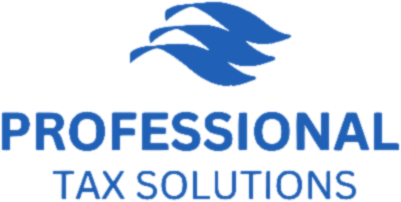Tax and financial consulting for small businesses
Professional Tax Solutions meets with owners in Grand Blanc, Traverse City, and nearby communities to review choices that affect taxes and cash flow. We look at pricing, hiring, equipment purchases, and benefits so your decisions show up correctly at filing time. Many teams align this session with tax planning and organize records through bookkeeping services to keep results consistent.
New business planning without the guesswork
Select an entity, obtain an EIN, and set up a clean accounting rhythm. We discuss S corporation elections, reasonable compensation, and estimated payments. If employees are on deck, connect the rollout to payroll services so withholdings and reports match your books from day one.
Keep Growing with Steady Reviews
Budgeting, cash flow, and quarterly checkpoints
We compare results to targets, update estimates, and time purchases to fit your bracket. For owners near Downtown Flint, Dort Highway, or Old Mission Peninsula, meetings can be local or virtual. When retirement enters the picture, coordinate decisions with retirement tax planning so contributions and withdrawals are tax efficient.
What does an S corporation change about my taxes?
An S corporation is a pass through entity, so business income and deductions flow to your personal return. You generally pay income tax on your share, and self employment tax shifts to wages you pay yourself rather than the entire profit. That means you need reasonable compensation on payroll, with the remaining profit potentially not subject to self employment tax. You still file a separate S corporation return, keep books, run payroll, and track basis. Professional Tax Solutions can model the break even point where an S election starts to help.
How should owner compensation be structured?
For S corporations, owners who work in the business must take reasonable compensation as W 2 wages before distributions. Reasonable means what you would pay someone else for the same duties, based on role, hours, and local rates in places like Grand Blanc and Traverse City. The rest of the profit can be distributed if cash flow allows. For LLCs taxed as partnerships or sole proprietors, compensation is generally through draws with self employment tax handled on the return. We review options each year to reflect changes in duties and profit.
When is the right time to buy or lease equipment?
Start with usefulness, then check taxes. If the asset drives revenue or replaces costly downtime, earlier is better. From a tax view, buying may allow Section 179 or bonus depreciation, while leasing spreads cost with simpler cash flow. Timing around year end can shift deductions into the year that helps most. We compare total cost, write off limits, and Michigan personal property considerations so you choose the path that fits cash and taxes.
How do I budget for estimated payments?
Use a rolling forecast tied to your profit and payroll. Set aside a percentage of net income each month, then true up before the April, June, September, and January deadlines. Safe harbor rules can prevent penalties, but matching to current year often avoids April surprises. If income is lumpy, increase the set aside after strong months and schedule a mid year review. Professional Tax Solutions prepares a simple estimate schedule and updates it when results change.
What records do lenders expect when I apply for financing in Michigan?
Most lenders ask for two years of business and personal tax returns, year to date financial statements, prior year financials, bank statements, a debt list, and aging reports for receivables and payables. Clean payroll records and sales summaries help if headcount or revenue trends matter. Having consistent bookkeeping and a reconciliation report speeds underwriting. We can prepare a lender packet with the exact documents your bank or credit union requires.


